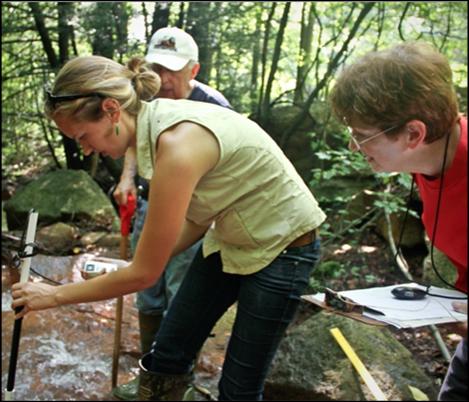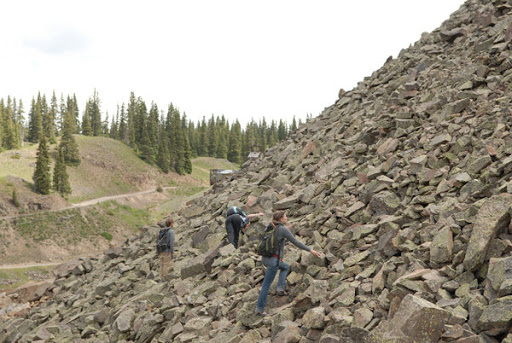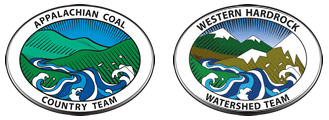Based on the work of
Schuylkill Headwaters Association
Northeast Pennsylvania
Schuylkill Headwaters Association (SHA) has met a variety of volunteer needs by partnering with the Retired and Senior Volunteer Program (RSVP) in their county. RSVP is a national program operated through SeniorCorps, a branch of the Corporation for National and Community Service. In Pennsylvania, RSVP was previously linked with environmental causes through the Environmental Alliance for Senior Involvement Program (EASI), but this program ended. However, SHA was able to maintain a senior volunteer base called Senior Environmental Corps (SEC) through their local RSVP office. At one point, SHA had about 15 active senior volunteers involved in water monitoring, but generally have 8-10. Their approach has been not only to train the volunteers in water monitoring protocols, but to personalize the work for the volunteers. They also inform the volunteers for what the data is used so they can see the fruitfulness of volunteering. Two RSVP water monitors now train RSVP volunteers that are new to SHA.

Tested by
Upper Tennessee River Roundtable
Southwest Virginia
The Upper Tennessee River Roundtable (UTRR) hoped to recruit more volunteers through the Retired and Senior Volunteer Program (RSVP). With one existing RSVP volunteer, UTRR wanted to expand their pool of volunteers to assist with large mailings, creation of education kits, manning festival booths and other office tasks. Learning that RSVP favors regular volunteer activities on a consistent basis, UTRR aimed to create an “outreach team” to attend festival and events as representatives of the organization. These volunteers would also do environmental education in local schools and at events. UTRR’s OSM/VISTA attended an RSVP luncheon and spoke about UTRR and opportunities for involvement. She also distributed custom -made invitations to a UTRR recruitment/orientation dinner to each person at the luncheon, but the dinner was cancelled due to the lack of responses. The existing RSVP volunteer initiated an outreach booth at the Virginia Highlands Festival. This would not have happened without her. Active RSVP members were already connected to certain sites and putting in their volunteer hours. UTRR recommends this trial practice to groups with the time to build their project as a legitimate RSVP site. A group needs to be established enough to have a supervisor with enough time to work with RSVP on the goals, schedule and description of the volunteer project, and then to supervise regular RSVP volunteers.
Tested by
Mountain Studies Institute
Southwestern Colorado
Mountain Studies Institute (MSI) undertook the development and implementation of a long-term volunteer environmental monitoring project that seeks to record climate change impacts on specific sites in the San Juan Mountains. To do this, the organization decided to organize a citizen science program to monitor the American Pika, a small alpine mammal that serves as a figurative “canary in the coal mine” of global climate change. MSI launched PikaNET, a citizen science initiative that serves both education and research goals by directly involving the community in climate change research and stewardship. Though open to any and all volunteers, MSI wanted to recruit senior volunteers through RSVP. MSI’s work with RSVP hinged on the implementation of PikaNET, the project for which these volunteers would be recruited. MSI made contact with RSVP and other senior outdoor organizations in the area, but no volunteer training workshops were held during the trial practice reporting period. So, they were unable to report on the success of this outreach. As the pilot year for this project, the outputs were mostly educational materials including the PikaNET Manual & Protocols, training, identification and outreach presentations, and the development of a species identification cheat sheet. These materials lay the foundation for volunteer training, the next step in the project.

“We found it very challenging and very frustrating continually trying to engage the RSVP volunteers, who were already committed to other volunteer projects and did not have time to work with us, too. People in the RSVP program here are already committed to definite programs.”
-Upper Tennessee River Roundtable
